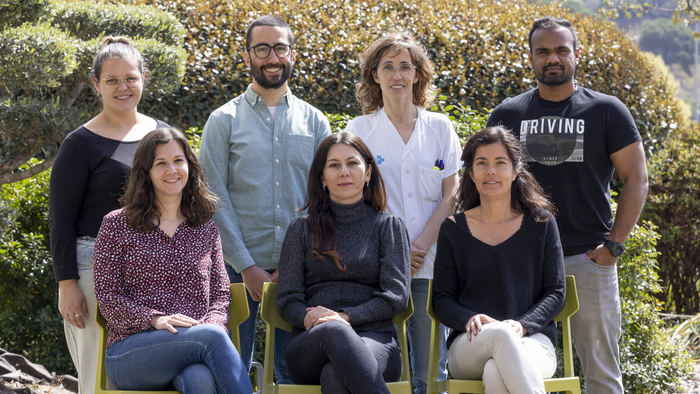Researchers from the Innate Immunity group at the Germans Trias i Pujol Research Institute (IGTP) have developed a new immunotherapy based on a monoclonal antibody directed against tumour macrophages. The results obtained lay the foundations for a new treatment for patients with lung cancer, with the potential to be applied to other solid tumours. The study has been published in the journal eBioMedicine.

Credit: IGTP
Researchers from the Innate Immunity group at the Germans Trias i Pujol Research Institute (IGTP) have developed a new immunotherapy based on a monoclonal antibody directed against tumour macrophages. The results obtained lay the foundations for a new treatment for patients with lung cancer, with the potential to be applied to other solid tumours. The study has been published in the journal eBioMedicine.
Cancer is one of the leading causes of death worldwide, with nearly 10 million deaths in 2020 according to the World Health Organisation. Although there are numerous treatments available, very few are truly curative. The problem lies in the ability of tumour cells to manipulate and educate the immune system so that it does not recognise them as malignant and works in their favour.
Immunotherapies aim to reactivate and re-educate the immune system to generate a robust anti-tumour response. These treatments have been a breakthrough for non-curable tumours, but still need improvement. In this context, immune cells called macrophages are a promising target in immuno-oncology, because tumour-associated macrophages (TAM macrophages) are immunosuppressive in most solid cancers, i.e., they weaken the immune system and reduce its effectiveness.
A recent study led by the Innate Immunity research group of the IGTP, under the direction of Dr. Maria Rosa Sarrias, shows the key role of the CD5L protein in TAMs. The authors of the study, from different national and international centres, observed that a higher amount of this protein in macrophages is associated with a worse prognosis in lung cancer patients.
To address the problem, researchers have generated RImAb, a new antibody that specifically binds CD5L and reprogrammes macrophages. The antibody changes the way TAMs act, reducing their immunosuppressive capacity and endowing them with anti-tumour activity. This modifies the tumour microenvironment and reduces tumour growth in mice.
According to Dr. Sarrias, “the results open the door to a new line of treatment for lung cancer patients, with the potential to be applied to other solid tumours”. This treatment will be further developed thanks to the grant from the CaixaImpulse health innovation programme of the “laCaixa” Foundation that the Innate Immunology research group recently received, which will allow them to continue exploring the mechanism of action of the new immunotherapy, its application in other types of cancer, as well as its progression towards clinical trials.
Journal
EBioMedicine
DOI
10.1016/j.ebiom.2023.104555
Method of Research
Experimental study
Subject of Research
Animals
Article Title
Macrophage CD5L is a target for cancer immunotherapy
Article Publication Date
10-Apr-2023
COI Statement
A patent protecting a method for the detection of CD5L has been submitted to the European Patent Office (EP3653646A1). Likewise, the RImAb antibody is the object of an EP3476863A1 patent. LK is part of an institutional licensing agreement with SunRock Biopharma, and co-inventor of two patents (EP22382093.7 and 62828195). JB received support from MSD, Grífols and Hipra through institutional grants, and by AlbaJuna Therapeutics S.L. through an Institutional License. He is Founder and CEO of AlbaJuna Therapeutics S.L. from which he owns stock options. He is also consultant for MSD and Nesapor S.L, and received support from Gilead for attending meetings. GT has received honoraria from Takeda for lectures.



